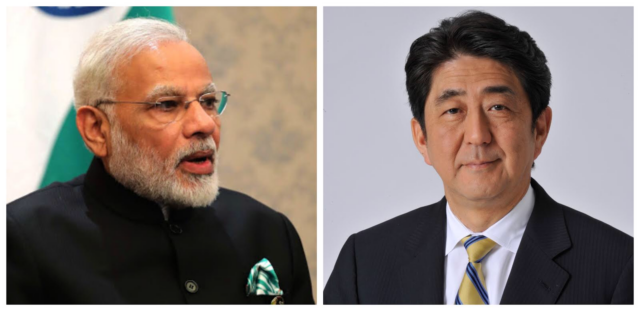NEW DELHI: Japan may be inching close to a decision on joining RCEP (Regional Comprehensive Economic Partnership) although Tokyo had earlier given the impression it would wait until India made up its mind. But with India determined to stay out, Japan is being asked by other states (that plan to join) how long it intends to hold out.
According to Prof. Ken Jimbo, who researches on Asian security at Tokyo’s Keio University, a decision would have come earlier if the two prime ministers had met as planned in Guwahati in January. But the agitation against the Citizenship Amendment Act in Assam derailed that meeting, so very likely Japan will move on RCEP after Narendra Modi and Shinzo Abe fix new dates for a meeting.
“But Japan will keep up the rhetoric of wanting India in the RCEP,” said Prof. Jimbo, speaking briefly to StratNews Global on the sidelines of a seminar on Japan’s Indo-Pacific policy in Delhi. He admitted that “an RCEP without India could leave the field open to China;” but Japan needed to move forward with the hope that at some point India would join in.
RCEP underscores Japan’s evolving views on the Indo-Pacific and the role of China. “Japan politically and militarily is competing with China,” said Prof. Jimbo “but economically we are cooperating. Although there are concerns about China’s investment style leading to debt traps, its labour practices and its security profile in Cambodia, there is a need to provide an alternative. We need to compete in a healthy way and help build choices.”
That may not sound too great in Delhi’s South Block but Japanese statements on China’s Belt & Road Initiative (BRI) have mellowed and become less “zero sum” in the last few years. This takes into account the demand for infrastructure in Southeast Asia that needs financing. The thinking is Japan could act as an “interface” in BRI projects, helping with “co-financing and co-management”.
“China’s debt diplomacy has deepened Japan’s responsibilities,” says Dr Tetsuo Kotani of the Japan Institute of International Affairs, a private think tank on foreign affairs, “as it is working with China on infra projects in various countries. We must underscore transparency, and consider the economic health of the recipient country. Japan should invite China to the Paris Club of debtors and creditors which can come up with workable measures to resolve debt issues.”
How amenable China will be to persuasion is not clear. Its behavior in the South China Sea has hardly built any confidence.
“Prime Minister Shinzo Abe said no use of force, settle disputes peacefully, but in the South China Sea we see the militarization of islands and attempts to forcefully settle maritime disputes,” said Toshihide Ando, Minister at the Japanese embassy in Delhi. “The Code of Conduct currently under negotiation between ASEAN and China should be consistent with international law. In that sense, the developments in the SCS are a test case for international law.”
Tetsuo Kotani underscored issues that are currently being discussed by Japan’s diplomats and military thinkers. China is not threatening security in the Indian Ocean since its capabilities currently are limited, he said. But this could change in the longer term.
“In the Bay of Bengal,” he pointed out, “China’s capabilities are underestimated. It has submarines there that have visited Colombo and Karachi. Its militarization of the SCS has implications for the Bay of Bengal. Its muscle will be effective as it develops drones, over the horizon radar and artificial intelligence. It can target the Indian Navy in the Bay of Bengal. Also ports in Myanmar and Sri Lanka could be militarized.”
China is conducting flag operations in the Arabian Sea and its anti-piracy patrols and cooperative acts with other navies is boosting its position. It is known to be exploring a base in Madagascar and already has one in Djibouti. So their capacities in the Indian Ocean are developing. The point is how will it use these facilities? China could even enter the western Indian Ocean as U.S.-Iran tensions rise.
Japanese thinking suggests they see India as the resident power in the Indian Ocean. It has promoted the peaceful resolution of disputes and settled the maritime dispute with Bangladesh. This scenario could change if U.S.-China tensions rise. There was a time when the U.S. was the world’s leading power even in the Pacific. Today it is clear it cannot do it alone and needs partners. But does Trump see the Indo-Pacific as a priority? Will he defend the Sea Lines of Communications?
Doubts about the U.S. have strengthened the view in Tokyo that India and Japan must work together to coordinate their approach, whether on Iran or the South China Sea. Bilateral relations need to be institutionalised so these are no longer dependent on the good personal equation between Abe and Modi.
Thirty eight years in journalism, widely travelled, history buff with a preference for Old Monk Rum. Current interest/focus spans China, Technology and Trade. Recent reads: Steven Colls Directorate S and Alexander Frater's Chasing the Monsoon. Netflix/Prime video junkie. Loves animal videos on Facebook. Reluctant tweeter.





